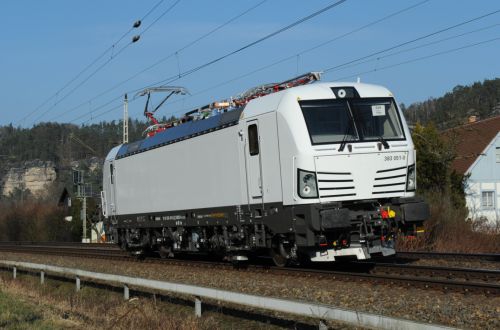These trains are currently hauled by NS class 1700 1.5kV dc electric locomotives on the Dutch section of the route with a German Rail (DB) 15kV ac class 101 locomotive taking over at the border station of Bad Bentheim for the remainder of the journey.
The Vectrons will be introduced in December 2019, eliminating the locomotive change at the border and potentially reducing the journey time for direct trains between the Dutch and German capitals.
At present, the direct inter-city service offers a journey time of 6h 34min, compared with 6h 18min with a change to an ICE service at Hannover Main Station.
In the Netherlands the trains are limited to a maximum speed of 140 km/h while the high density of services leaves little scope for faster running. However, limiting the number of stops (currently 15) might help to achieve a reduction in journey time.
In addition to the change of traction, DB is planning to replace the 200km/h InterCity/EuroCity coaches currently used on Amsterdam - Berlin services.
In the longer-term, the Dutch are keen to see much faster connections to Germany. In recent months both the CEO of Dutch infrastructure manager Prorail, Mr Pier Eringa, and NS CEO, Mr Roger van Boxtel, have called for improvements on international corridors. Van Boxtel, points to the high-speed services from Amsterdam to Frankfurt, Paris and London saying he wants to see a two-hour journey time reduction for Berlin services. He says NS has had discussions with DB and relevant authorities in both countries on this topic.

